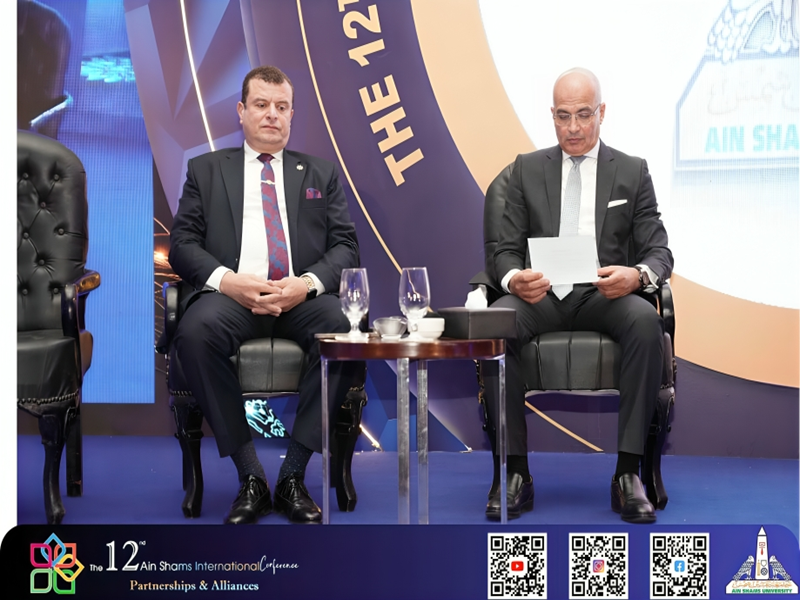The Director of the National Anti-Corruption Academy, a keynote speaker in the “Governance and Accountability” session during the activities of the 12th Ain Shams University Scientific Conference
Prof. Mohamed Diaa Zain El-Abedeen, President of Ain Shams University, opened the “Governance and Accountability” session, which addressed the dangers of corruption and the state’s efforts to combat it, during which Major General Dr. Mohamed Salama Ahmed Ezzat, First Undersecretary of the Administrative Oversight Authority and Director of the National Anti-Corruption Academy, spoke during the activities of the first day of the 12th Ain Shams University conference.
The session was moderated by Prof. Mohamed Safi, Dean of the Faculty of Law, and Prof. Heba Shaheen, Dean of the Faculty of Mass Communication.
Prof. Mohamed Diaa Zain El-Abedeen welcomed Major General Dr. Muhammad Salama Ahmed Ezzat, praising his honorable and busy academic and scientific career. His Excellency stressed that the fight against corruption is based on identifying and evaluating the risks of corruption and working to prevent and combat it by setting goals, executive procedures, programs and mechanisms that ensure its containment and the activation of a societal culture that rejects corruption and improving levels of transparency and integrity.
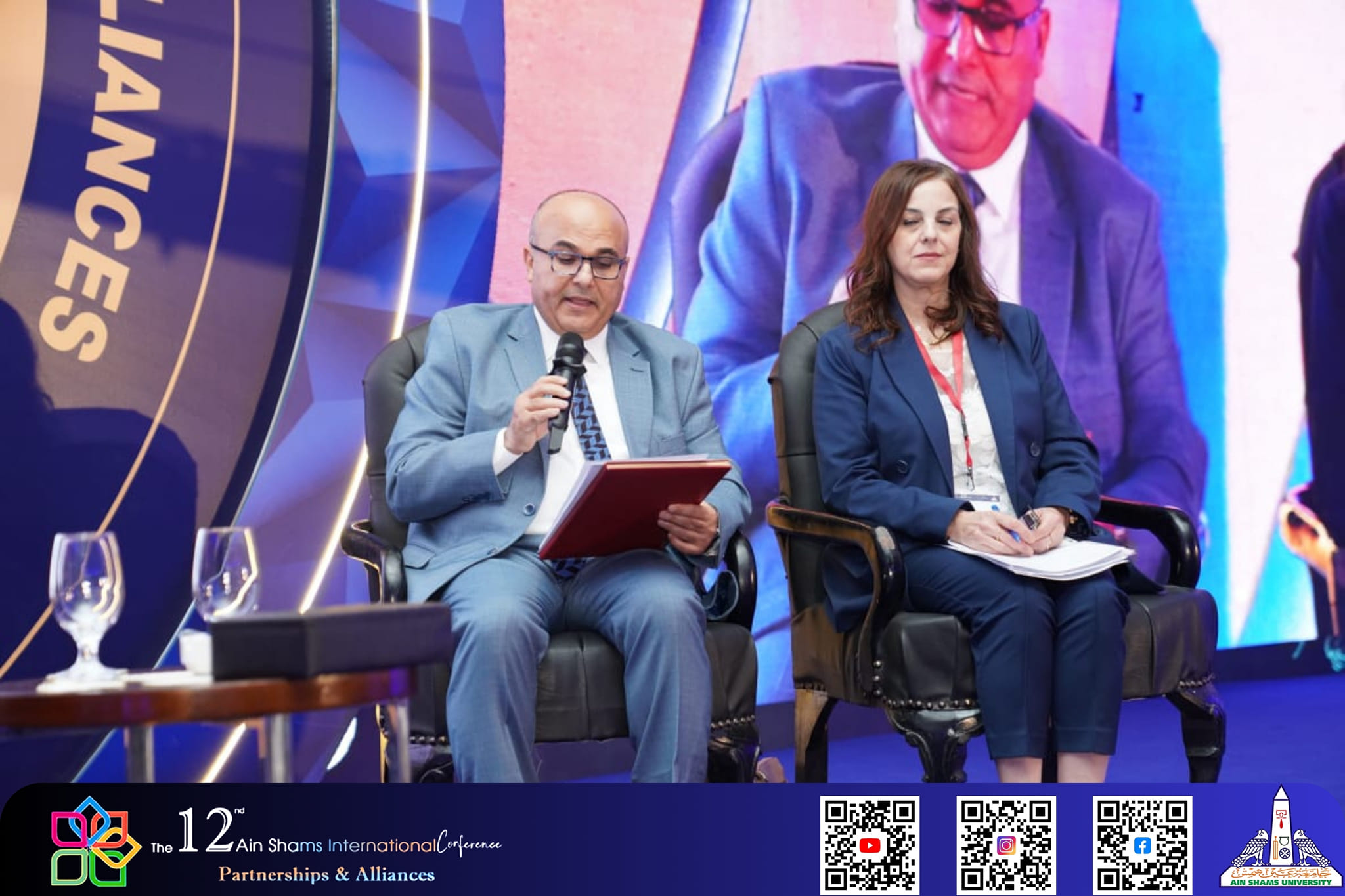 |
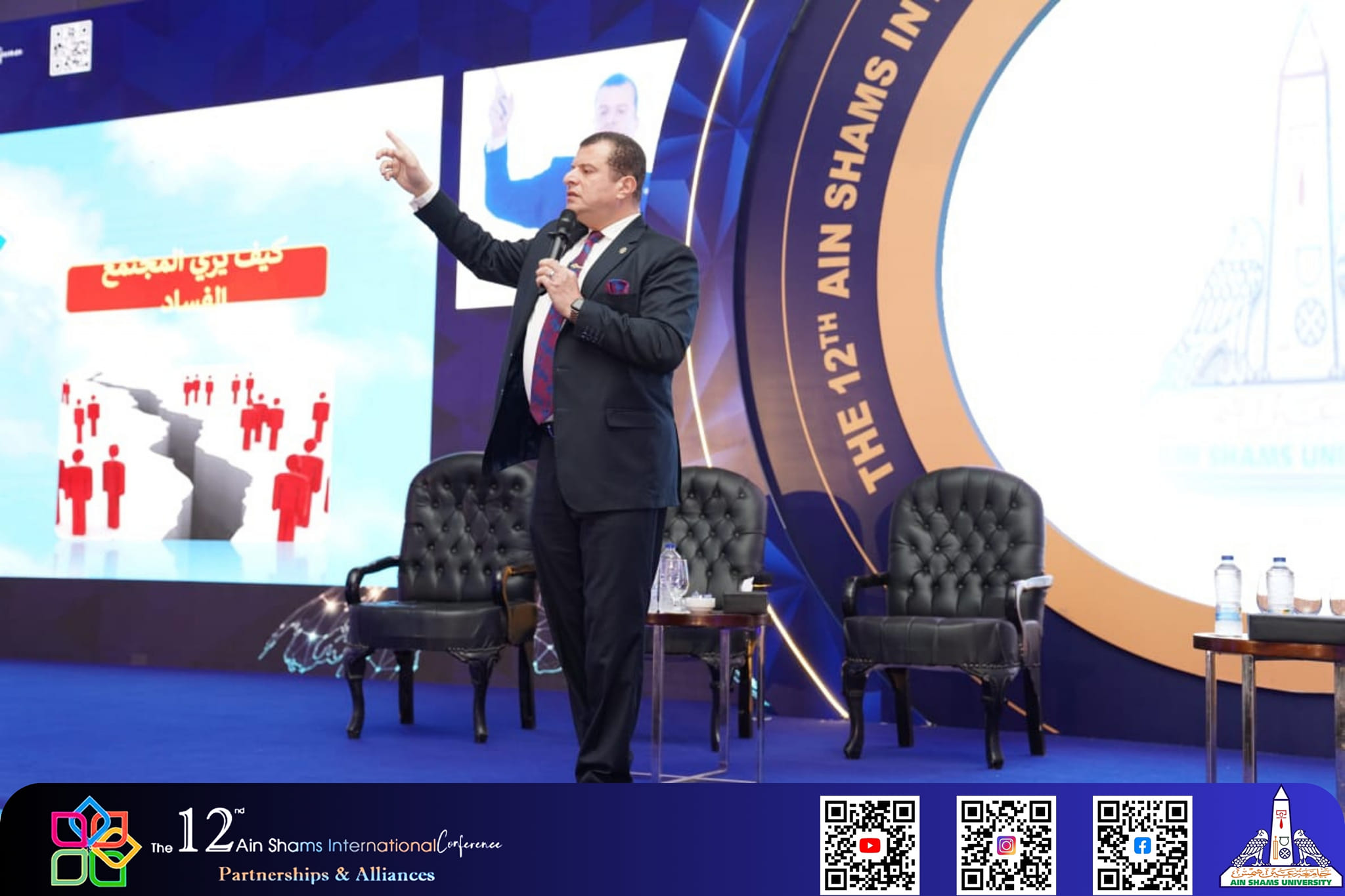 |
Prof. Mohamed Safi, Dean of the Faculty of Law, said that corruption is a global phenomenon that spreads in all societies without discrimination, but in varying proportions according to the values, customs and cultures of each people and the mechanisms that each society provides to prevent corruption. His Excellency referred to the concept of combating corruption as a behavioral phenomenon that expresses a person’s elevation of bad morals and abandoning suspicions in order to display honesty and good values by activating a system of values that was built within society to preserve state property and eradicate and combat corruption in all its forms.
During his speech, Major General Dr. Mohamed Salama explained what the term corruption is and when it first appeared, indicating that corruption existed from before creation, and was mentioned in all heavenly religions, but what is meant by this corruption is spiritual corruption.
His Excellency referred to the historical and human origin of the emergence of corruption throughout the ages, how society views corruption, and the negative effects of corrupt practices on societies. His Excellency mentioned that there is a mechanism for international cooperation between countries to prevent corruption, which is the United Nations Convention against Corruption.
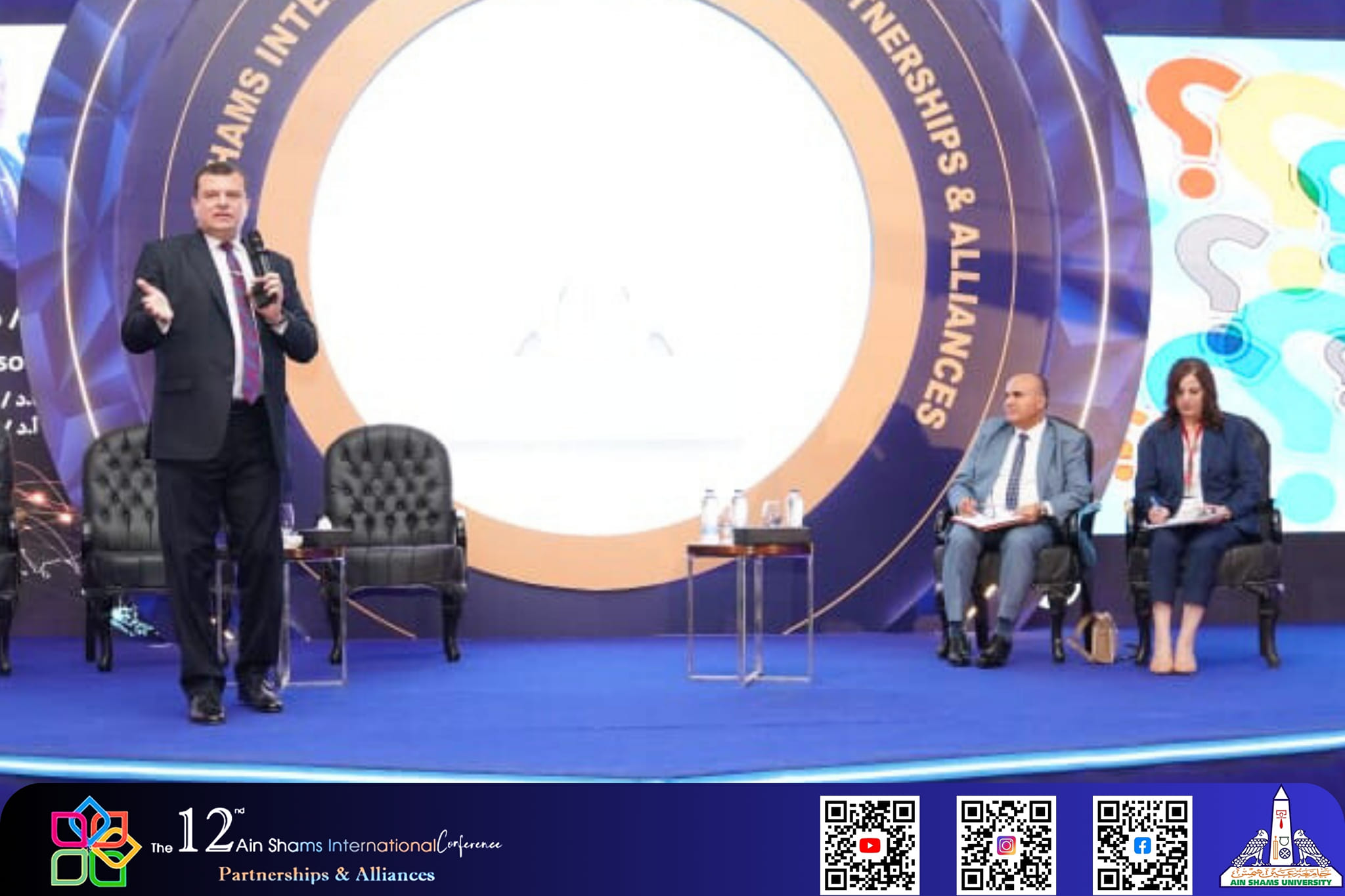 |
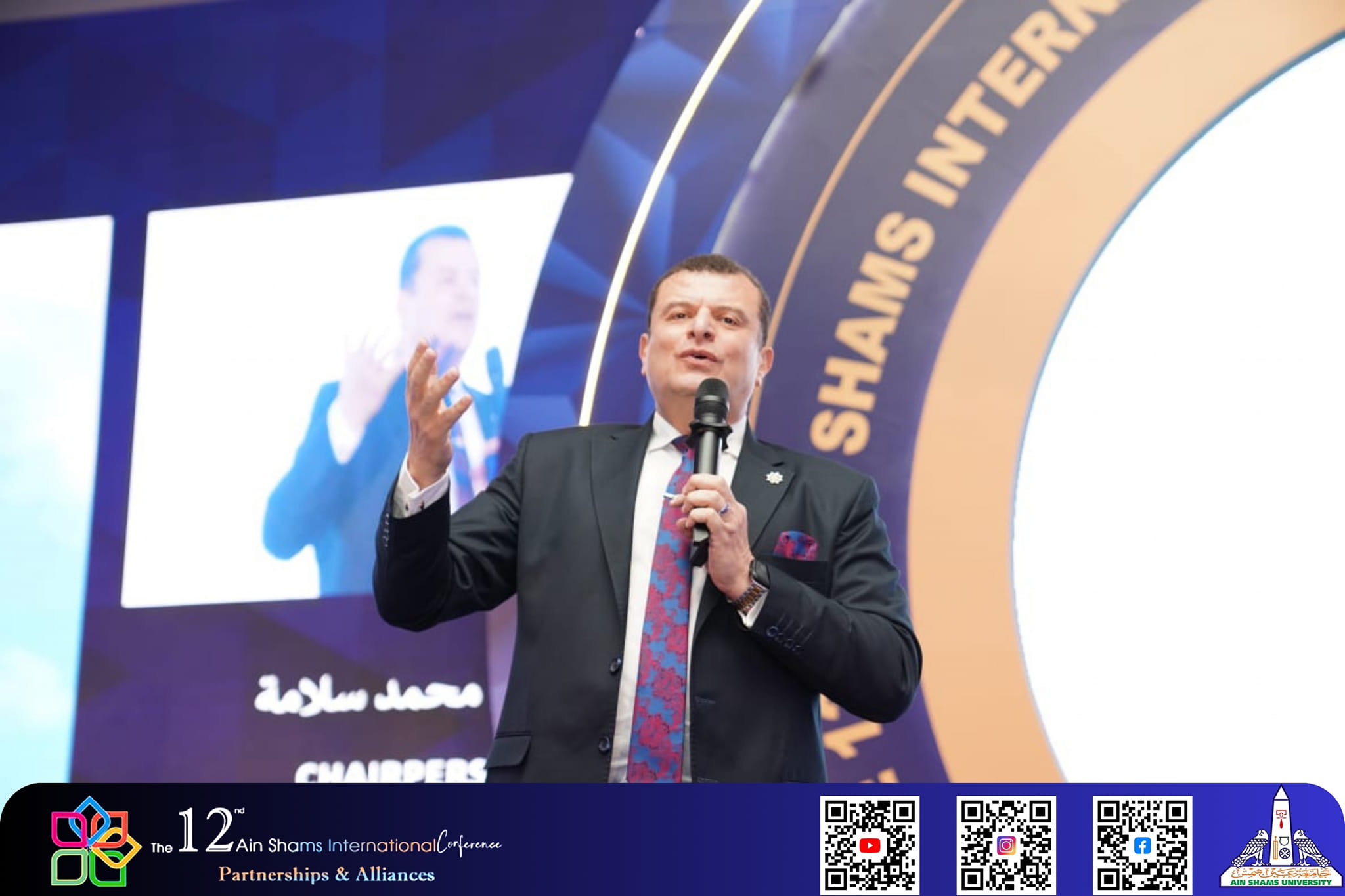 |
Regarding the form of administrative control in Egypt, His Excellency discussed three types of control in Egypt, which are: control of the legislative authority such as the House of Representatives and the Senate, control of the judicial authority represented in the Supreme Constitutional Court, the Court of Cassation, the Supreme Administrative Court, the Public Prosecution, and the executive authority, which has internal control units and external control bodies.
His Excellency also referred to the Constitution of the Arab Republic of Egypt and its vision in the field of combating corruption, and highlighted the most important concepts of the national anti-corruption strategy, and the goals it seeks to achieve.
He also explained the tasks and powers of the Administrative Control Authority by researching and investigating the causes of shortcomings in work and production and proposing means to avoid them, revealing defects in systems that hinder the regular functioning of public agencies, following up on the implementation of laws, ensuring that decisions and regulations are adequate, detecting administrative and financial violations and criminal offences, and controlling criminal offences, which occur by non-workers and which aim to undermine the integrity of the performance of job duties or public service. It also examines complaints submitted by citizens regarding violation of laws or negligence in the performance of public service.


.svg)

